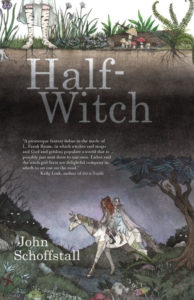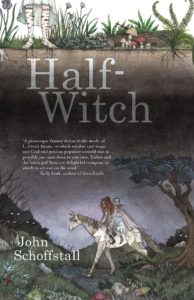I recently learned from friend and fellow-SFF writer Trent Hergenrader that there is a tabletop RPG (The Warren) that sounds like Richard Adams’ Watership Down with the horror elements amped up. Watership Down is mostly a romance of adventure, danger, flight, with some mystical/wonder stuff. But there is horror, too.
[Spoilers follow] In one section of the novel the main rabbit cast meets a colony of rabbits who are living in the wild but being maintained by a farmer who puts out food for them and protects them from predators. He also sets traps now and then when he wants a meal of rabbit. The rabbits are aware of this, in some rabbity way. They know they lead a charmed life, but at the cost of a rabbit disappearing now and then. They are living a horror story. Instead of fighting or fleeing, however, they have developed a gothy culture that romanticizes death. (Aside: it is this sort of insight and leap of imagination that makes Watership Down a great novel rather than merely a good one. Adams has, in James Blish’s famous phrase, not just ideas, but ideas about his ideas.) The main cast, when they understand the situation, are disgusted and horrified. Adams appears to feel the same way, that the gothy rabbit culture is decadent, even degenerate. Not proper rabbits.
It occurs to me that the current kerfuffle over the use of users’ on-line data and our trail of digital footprints across the web has the same moral flavor. We are the gothy rabbits. We have been given a glittery on-line playground of entertaining toys, all for free. But there is a cost. Every mouse click, every keystroke is recorded, analyzed, sold for billions and billions of dollars in the aggregate, and then used to gin up advertisements that exploit, with varying success, the interests we have inadvertently revealed. That dig into our souls to discover what we covet, what we love, what we hate, what we fear, and then use it to sell us stuff.
To be fair, viewing an ad for a 100-pack of Harley-Davidson plastic oil pan drain plugs (a recent Amazon ad targeted to me) is not as bad as being snared in a leg trap and turned into rabbit stew. We have made a deal with the devil, but the devil is going easy on us, as these things go.
Trading one value for another is a normal part of human life. But this business with on-line personal data is a new situation, a new trade-off. We’re still trying to evaluate it. Are we making the right choices? Is the value we receive greater than the value we give up?
Are we being proper rabbits?







